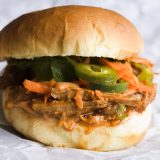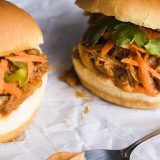The clichés were there—the meat pies, the flaked Lamington sponge cakes, the sausage rolls—all the Australian usuals, plied at the Carriageworks Farmers Market, a sprawling rapture of artisanal eats that every Saturday transforms a former rail yard snugged into Sydney’s quiet Eveleigh suburb. I mostly ignored them.
It was 9:30 a.m. and it was the Pigalicious that drew me, a tangle of heartily sauced pulled pork tucked into grilled, tender flatbread mounded with arugula and tomatoes, doused with chili mayonnaise. One of a handful of wraps sold by Jason Mills, owner of Bird & Ewe, a mobile barbecue joint that sells gloriously rich meats at markets around town.
I took my heap of meat outside, where seats of overturned milk crates and wooden boxes awaited in the spring sun. It was a glorious mess to eat—moist, savory, sweet and spicy, the heat both hedged and heightened by the spiked mayo. The effect was superb, and obviously not the result of your basic overly sweet barbecue. The secret—it turned out—was an unexpected marriage.
The chalkboard-scrawled offerings Mills and his Korean wife, Injeong Kim, have assembled are vivid. Slow-roasted Australian meats and birds heavily accented by the flavors of Asia. Miso. Gochujang. Wasabi. Sticky rice. Sesame seeds. Generous handfuls of mint, cilantro, cumin and coriander.
The couple’s cooking tells the story of Australia, a country perched at the edge of Asia and long the recipient of the region’s peoples, cultures and cuisines. So much so that in a week of eating across Sydney, it became obvious there was no point distinguishing between Australian and Asian foods. So enmeshed is one in the other, it is a distinction without difference.
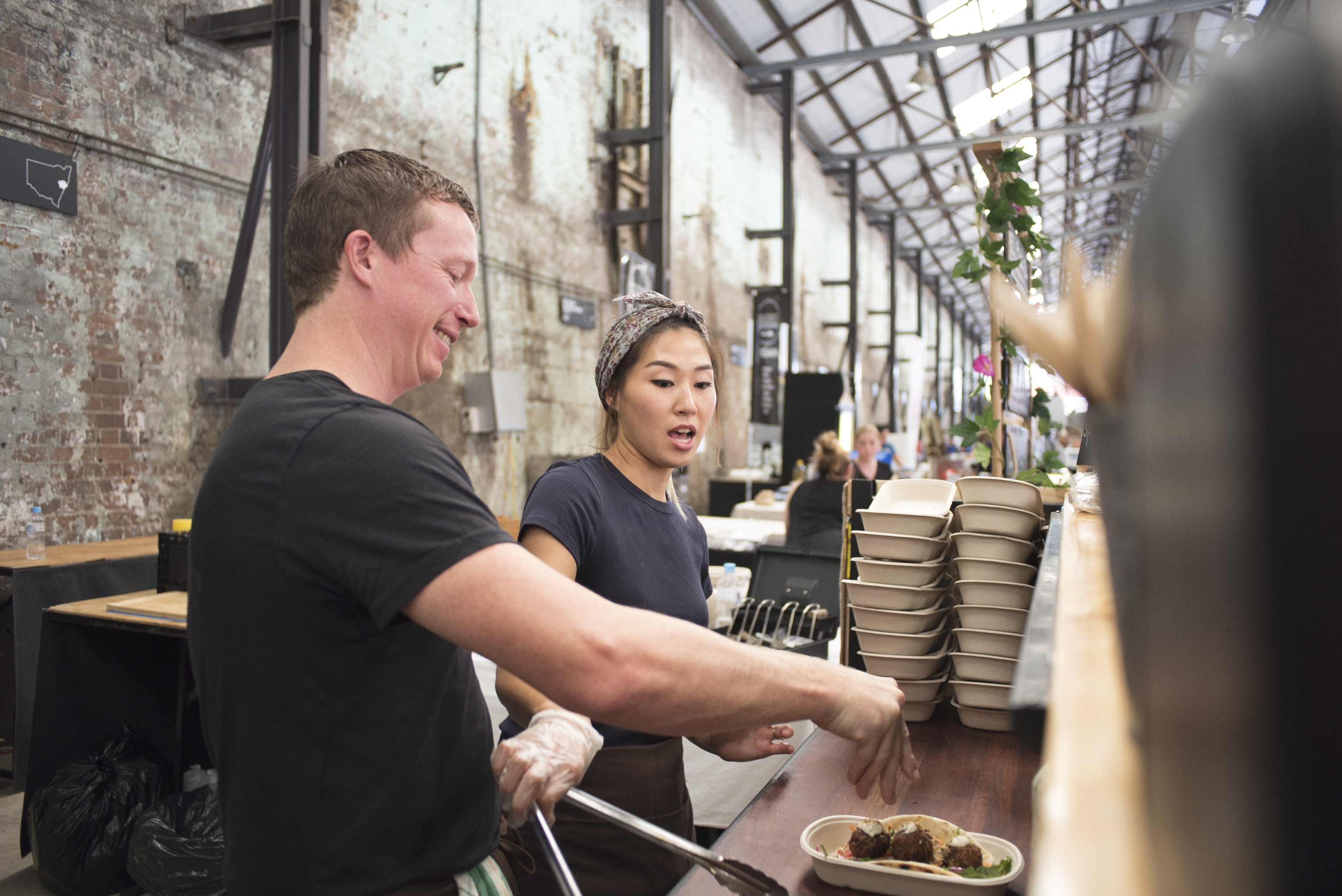
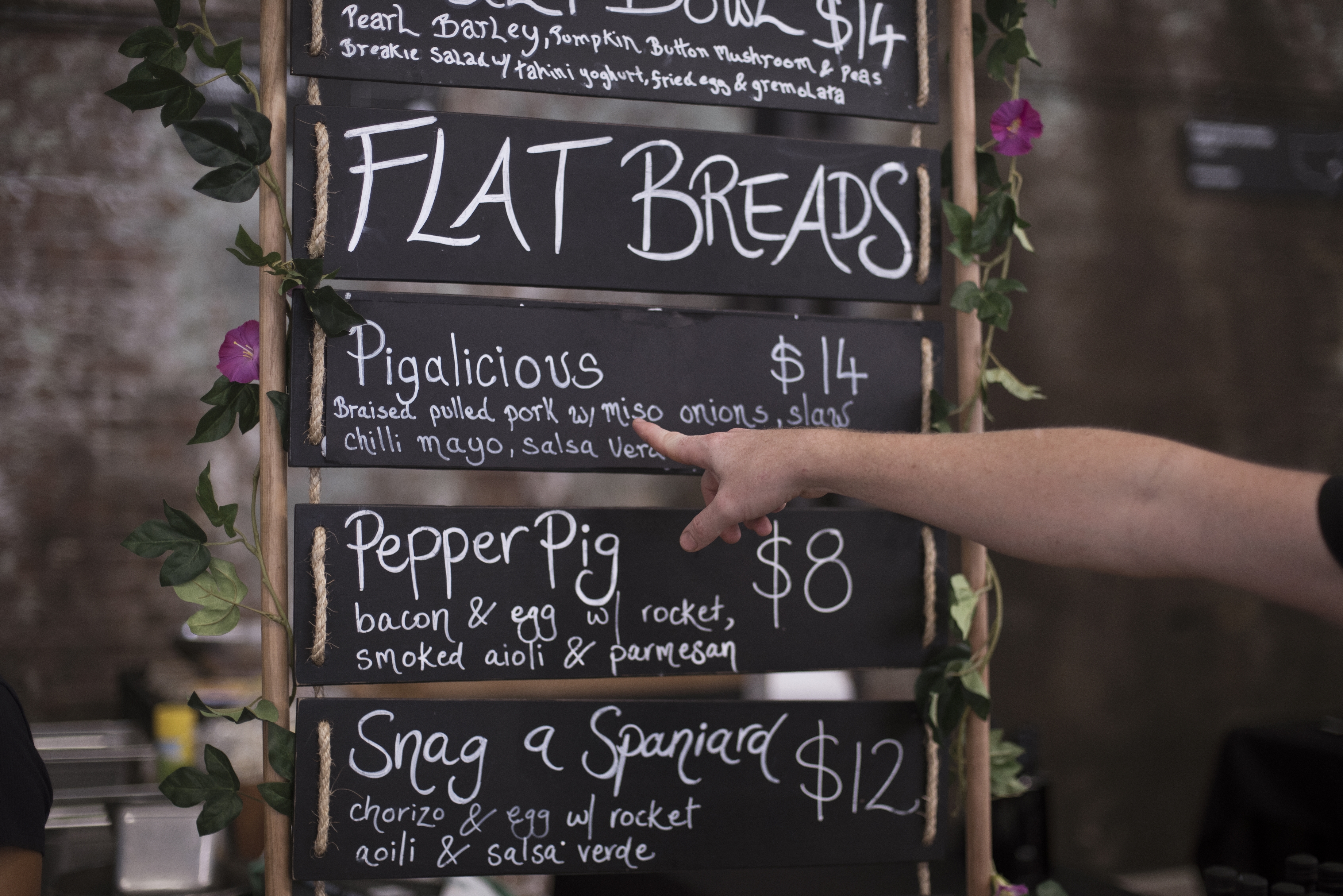
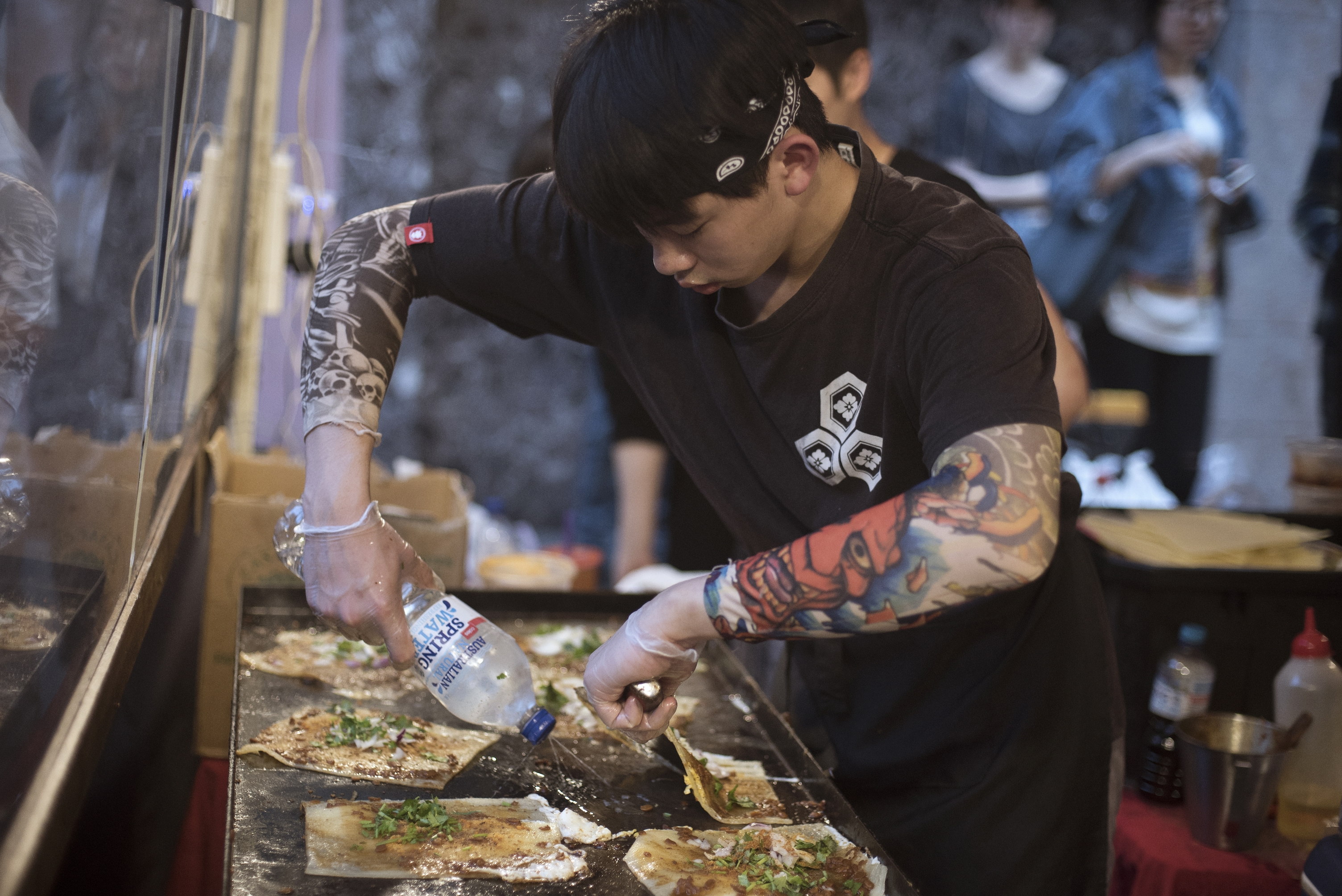
It shows up in breakfast spots like White Taro, where ham and cheese “toasties” share a menu with Vietnamese pho. At sandwich shops like Relish Food Co., where roast beef is dressed with lemon grass and mint. At burger shops like Chur, where the classic Aussie patty—always topped with beets!—is capped with an herbal Asian slaw. At bastions of high-end open-flame cooking like Firedoor, where the 174-day fat-aged beef rib can be accompanied by sake service.
And at Bird & Ewe, where the search for a fresh and less cloying take on the sweet-savory-spicy that typically defines barbecued pulled pork—hugely popular in Australia—led the couple to flavors drawn from Kim’s childhood. They settled on a blend of sweet white miso from Japan and fiery gochujang from Korea.
The miso—a salty paste of fermented soy—is caramelized with onions almost to the point of burning, taming its sweetness while deepening its richness. The gochujang—also a fermented soy paste, but packed with chili—is added to stock in which pork shoulder is slowly braised. The two elements are stirred together at the end, a deliciously simple two-stroke solution.
At Milk Street, we loved the way the two bold, umami-rich ingredients easily transformed a fatty cut of pork. We stuck closely to Bird & Ewe’s method, braising pork shoulder in water seasoned with gochujang and a bit of white miso. Cutting the shoulder into 2-inch cubes helped speed the cooking and created more surface area for the liquid to season.
While the pork cooked, we sliced and browned an onion, then stirred in more white miso, cooking it down and browning it until jammy. Once the pork was ready, we shredded it, stirred in the miso onions, then added a bit more gochujang for spice and richness. Heaped onto flatbreads or buns and topped with crisp quick-pickled carrots and sliced jalapeños, the result was bold and balanced without the usual cloying sweetness of barbecue sauce.

